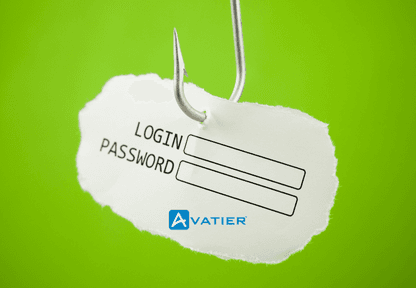August 17, 2025 • Mary Marshall
How Define Provisioning is Impacting Cloud Infrastructure Security
Discover how Define Provisioning enhances cloud infrastructure security with automation and zero-trust, boosting efficiency and protection.

The realm of cloud infrastructure is constantly evolving, driven by rapid technological advances and the growing need to secure and manage identities in an increasingly digital workspace. One of the key players in this domain is identity provisioning, specifically Define Provisioning, which has been transforming how organizations manage access to cloud resources, all while fortifying security measures.
The Landscape of Identity Management and Provisioning
In today’s digital-first world, identity management is at the forefront of ensuring that users are authenticated, authorized, and provided with the correct access at the right time. This role is critical as organizations shift from traditional on-premise solutions to cloud-based architectures—an evolution that necessitates a robust, scalable, and agile approach to identity and access management (IAM).
Define Provisioning plays a pivotal role in IAM by automating the user lifecycle, including onboarding, modification of roles, and offboarding processes. This approach significantly enhances operational efficiency and security by reducing manual errors and ensuring compliance with security policies.
How Define Provisioning Enhances Cloud Security
- Automation and Efficiency: Define Provisioning automates user provisioning and de-provisioning, drastically reducing the time and effort necessary to manage user accounts. This automation not only boosts operational efficiency but also aligns with zero-trust principles, ensuring that only verified and authenticated users gain access to necessary resources. To explore how Avatier excels in user provisioning, visit their User Provisioning Software page.
- Reduction of Human Error: By automating identity lifecycle management, Define Provisioning minimizes human error, ensuring that user access permissions are always current and accurate. A report by the Identity Theft Resource Center states that human error is responsible for 23% of data breaches, highlighting the importance of minimizing manual input through automation.
- Scalable and Flexible Solutions: Define Provisioning solutions, like those offered by Avatier, are designed to scale alongside an organization’s needs. They allow for flexibility in deployment, whether hosted in the cloud or on-premises, ensuring that as companies grow, their identity management strategies can adapt without added complexity.
- Compliance and Regulatory Adherence: Staying compliant with industry regulations such as HIPAA, SOX, and NIST requires meticulous tracking and management of user access and activity. Automated provisioning solutions like those from Avatier provide comprehensive compliance management tools that help organizations meet these rigorous standards effortlessly. Visit Avatier’s Compliance Management page for more information.
- Strengthening Zero-Trust Frameworks: A pivotal element of modern IT security is the implementation of a zero-trust security framework, where the assumption is that threats could be internal or external. Define Provisioning supports this framework by ensuring that each user’s access is continuously validated, reducing the attack surface for potential breaches.
Addressing Challenges in Cloud Security
Despite its benefits, identity provisioning is not without challenges. One of the key issues is managing the complexity of integration across various platforms. Organizations often operate in hybrid environments that combine multiple cloud services, each requiring seamless integration to maintain consistent security postures.
Moreover, while automation significantly reduces manual intervention, it necessitates rigorous monitoring and auditing to ensure that automated tasks are executed correctly and securely. Platforms like Avatier provide advanced compliance and auditing solutions that address these concerns effectively. For in-depth insights into security compliance, refer to Avatier’s Governance, Risk, and Compliance solutions.
Statistical Insights into Identity Provisioning and Security
According to Gartner, by 2023, 75% of security failures will result from inadequate management of identities, access, and privileges, underlining the urgency for automated identity provisioning solutions. Meanwhile, Okta’s Businesses at Work report highlights that the average organization deploys 88 apps, signifying a complex landscape where identity management solutions must efficiently manage access across various platforms.
Avatier’s Role in Enhancing Cloud Infrastructure Security
Avatier has emerged as a leader in cloud infrastructure security by offering Define Provisioning solutions that are both innovative and comprehensive. Their approach integrates automation with AI-driven security measures to provide seamless, self-service user experiences, which are critical in a digital-first workplace.
The key differentiator for Avatier lies in their innovative use of technology, allowing organizations to deploy identity management solutions that are both secure and user-friendly. Their solutions prioritize flexibility, enabling businesses to operate securely across a broad range of environments, whether cloud, on-premise, or hybrid.
Conclusion
Define Provisioning is a transformative approach in the field of identity management. It enhances cloud infrastructure security through automation and robust compliance measures, ensuring that organizations can operate safely and efficiently. Providers like Avatier exemplify these advancements by delivering cutting-edge solutions that meet the evolving needs of global workforces.
For organizations looking to bolster their identity management strategies, integrating advanced provisioning methods represents not only a necessity but a strategic advantage in the modern cyber environment. By leveraging solutions such as those offered by Avatier, enterprises can redefine their security postures and prepare for the future of work in the cloud.









